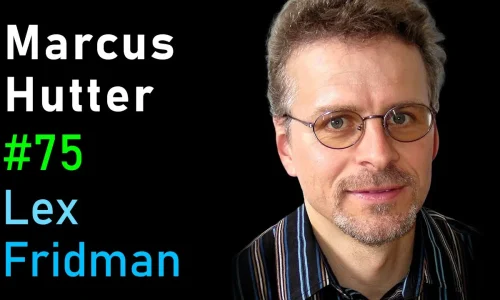See all Lex Fridman transcripts on Youtube

Marcus Hutter: Universal Artificial Intelligence, AIXI, and AGI | Lex Fridman Podcast #75
1 hours 39 minutes 55 seconds
🇬🇧 English

Omnivision Solutions Ltd
- Getting Started
- Create Transcript
- Pricing
- FAQs
- Recent Transcriptions
- Roadmap